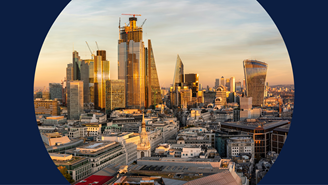This blog originally appeared on GES International’s website and has been republished following Sustainaltyics’ acquisition of the company on 9 January 2019. See the press release for more information.
Emerging markets (EMs) are gaining traction with investors. But, what about ESG? Should investors still consider a risk premium for ESG risks when investing in emerging markets?
Some systemic challenges in emerging markets would still suggest so. When looking at the Corruption Perception Index from Transparency International, it is clear that it continues to be dominated by developed markets in the top spots, while emerging markets are spread out in the bottom half of the list. This picture is also reflected in the Regulatory Quality and Rule of Law indices within the World Bank’s Worldwide Governance Indicators (WGI). There is remarkably little change, even over time spans of 5-10 years, with the systemic challenges related to corruption and regulation.
Of course, there are examples of countries that are making significant changes. Argentina has improved regulatory quality and rule of law dramatically since 2014, Vietnam has done the same, while Turkey has gone in the opposite direction. Argentina has changed its government, Vietnam is looking for international recognition and international investors, while in Turkey, Erdogan has taken advantage of a failed coup to crack down on all opposition and effectively take control of key institutions, including the judicial system. Interestingly, in the places where there have been positive changes (Argentina and Vietnam), the Corruption Perception Index has also improved, but noticeably much more slowly than other indicators. Corruption seems much harder to change, because it is deeply engrained within the culture and the institutions of nations in which it resides. Another part of the explanation is that the indicator measures the perception of corruption.
Various emerging markets have seen massive focus on corruption in the past couple of years, particularly Brazil, China and South Korea. Major scandals in these markets are driving a perception of corruption, but they are also coming in the aftermath of trends towards higher degrees of transparency and a stronger focus on accountability. The pressure for transparency and accountability comes from various stakeholders, including regulators, customers and not least investors. In general, the problem of corruption is probably improving due to growing accountability, but the increased transparency is bringing more corruption cases into public scrutiny and thereby creating the perception of more corruption.
Our experience in the Emerging Markets Engagement program after more than 500 onsite meetings over the past seven years shows that EM companies are gradually improving practices and disclosure on ESG. There are fewer laggards with a total absence of ESG awareness or disclosure and more companies are challenging the traditional frontrunners in the markets. While the old and historically dominant conglomerates in EMs have broadened out their CSR practices to also include an ESG perspective, newer and more dynamic EM companies are integrating ESG into the management structures when building the organisations.




